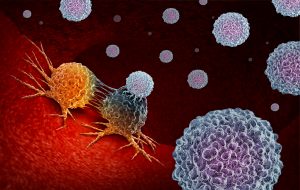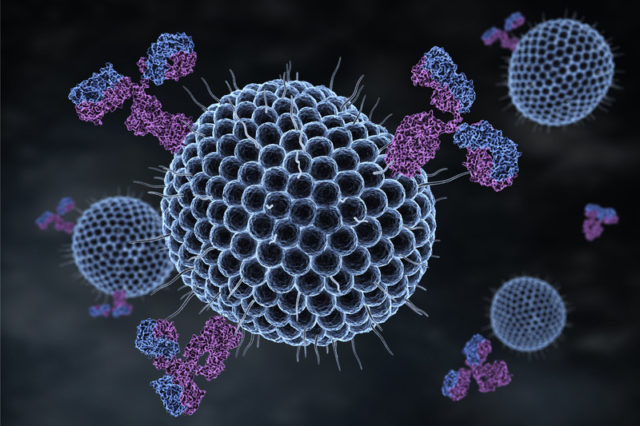 Immunotherapy has given oncologists and cancer patients new options for treating their disease. It utilizes the powerful immune system to fight cancer in a more natural — and oftentimes more powerful — way. Although immunotherapy treatments have shown success at treating many different patients, the majority still don’t respond to it, or they respond at first and end up relapsing later on. Until now, doctors couldn’t say for sure why this happens, but a Rockefeller University researcher believes she has determined which tumor cells are responsible for stopping immunotherapy and how exactly they accomplish it.
Immunotherapy has given oncologists and cancer patients new options for treating their disease. It utilizes the powerful immune system to fight cancer in a more natural — and oftentimes more powerful — way. Although immunotherapy treatments have shown success at treating many different patients, the majority still don’t respond to it, or they respond at first and end up relapsing later on. Until now, doctors couldn’t say for sure why this happens, but a Rockefeller University researcher believes she has determined which tumor cells are responsible for stopping immunotherapy and how exactly they accomplish it.
Elaine Fuchs, the Rebecca C. Lancefield Professor at Rockefeller, recently led a mouse model study in which the subjects had a type of squamous cell carcinoma cancer that typically responds to immunotherapy. The study was published in Cell. The team discovered that a subset of cancer cells known as tumor-initiating stem cells can survive immunotherapy treatments by producing a molecule called CD80. This molecule lives on the surface of the cells and it weakens the power of the body’s immune cells that would normally destroy the cancer.
Yuxuan Miao, a post doctoral associate in Fuchs’ lab, said that “tumor-initiating stem cells make up less than two percent of a tumor’s mass, but they’re sneaky. They essentially quite the immune system to avoid elimination, then later regrow a whole new tumor.”
 Fuchs and her team also revealed that the molecular switch that prompts cells to create CD80 in the first place is a protein called TGF beta. Scientists can now use this information to improve immunotherapy treatments in many ways. For instance, they could use antibodies that block TGF beta in combination with conventional immunotherapy drugs in order to conquer this issue of resistance.
Fuchs and her team also revealed that the molecular switch that prompts cells to create CD80 in the first place is a protein called TGF beta. Scientists can now use this information to improve immunotherapy treatments in many ways. For instance, they could use antibodies that block TGF beta in combination with conventional immunotherapy drugs in order to conquer this issue of resistance.
Further research in this area still needs to be done, but this is a significant development in the field of immunotherapy that could go along way into improving patient outcomes.




























